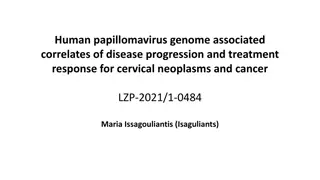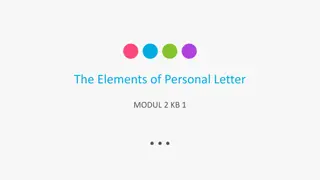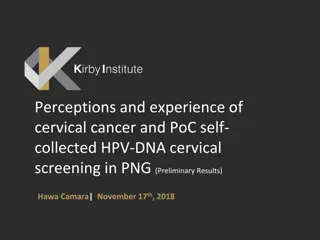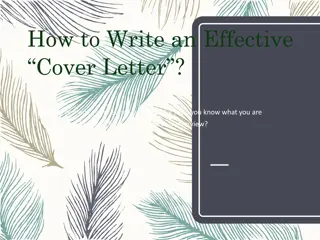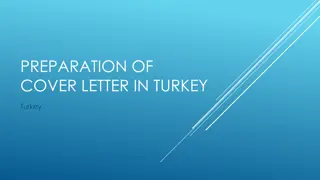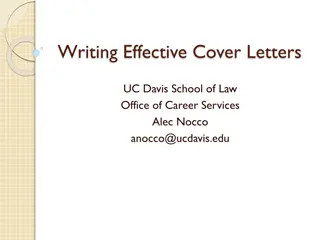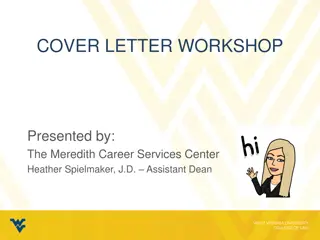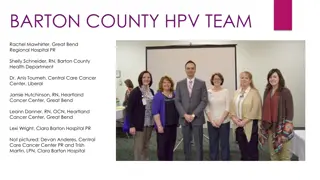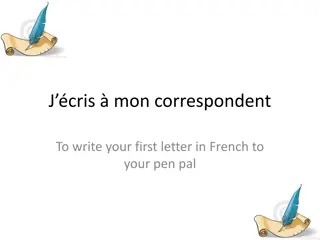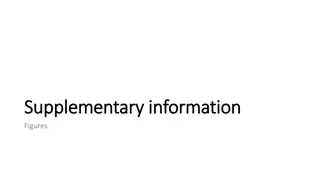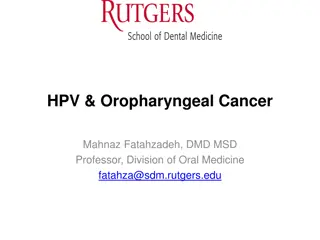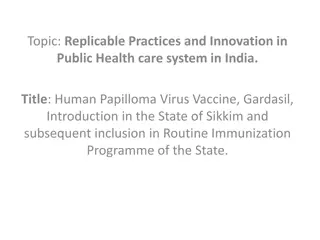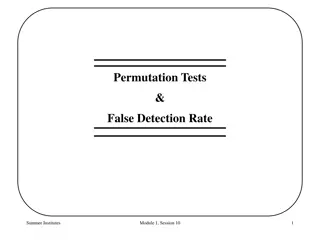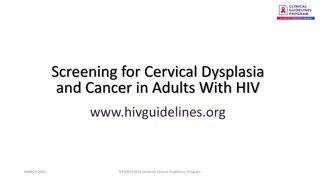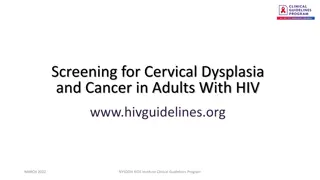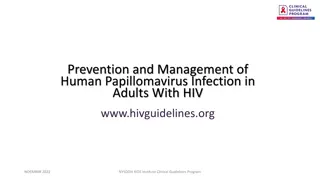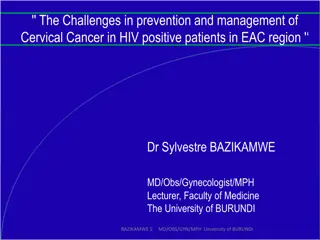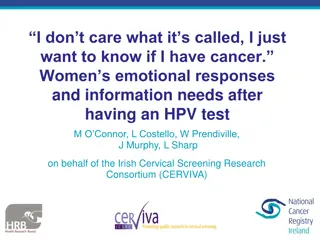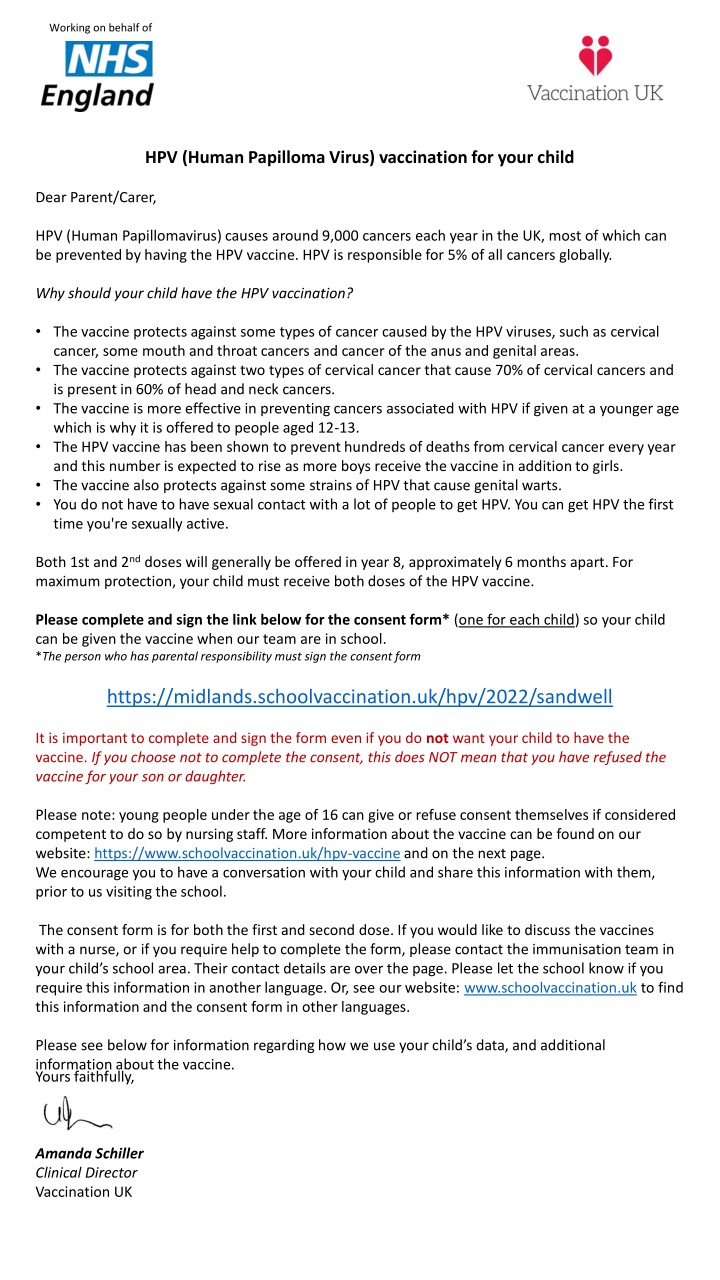
HPV Vaccination Importance and Consent Process for Children
"Learn about the importance of HPV vaccination for children to prevent various cancers, including cervical cancer and genital warts. Find out how to provide consent for the HPV vaccine and the process involved."
Download Presentation

Please find below an Image/Link to download the presentation.
The content on the website is provided AS IS for your information and personal use only. It may not be sold, licensed, or shared on other websites without obtaining consent from the author. If you encounter any issues during the download, it is possible that the publisher has removed the file from their server.
You are allowed to download the files provided on this website for personal or commercial use, subject to the condition that they are used lawfully. All files are the property of their respective owners.
The content on the website is provided AS IS for your information and personal use only. It may not be sold, licensed, or shared on other websites without obtaining consent from the author.
E N D
Presentation Transcript
Working on behalf of HPV (Human Papilloma Virus) vaccination for your child Dear Parent/Carer, HPV (Human Papillomavirus) causes around 9,000 cancers each year in the UK, most of which can be prevented by having the HPV vaccine. HPV is responsible for 5% of all cancers globally. Why should your child have the HPV vaccination? The vaccine protects against some types of cancer caused by the HPV viruses, such as cervical cancer, some mouth and throat cancers and cancer of the anus and genital areas. The vaccine protects against two types of cervical cancer that cause 70% of cervical cancers and is present in 60% of head and neck cancers. The vaccine is more effective in preventing cancers associated with HPV if given at a younger age which is why it is offered to people aged 12-13. The HPV vaccine has been shown to prevent hundreds of deaths from cervical cancer every year and this number is expected to rise as more boys receive the vaccine in addition to girls. The vaccine also protects against some strains of HPV that cause genital warts. You do not have to have sexual contact with a lot of people to get HPV. You can get HPV the first time you're sexually active. Both 1st and 2nd doses will generally be offered in year 8, approximately 6 months apart. For maximum protection, your child must receive both doses of the HPV vaccine. Please complete and sign the link below for the consent form* (one for each child) so your child can be given the vaccine when our team are in school. *The person who has parental responsibility must sign the consent form https://midlands.schoolvaccination.uk/hpv/2022/sandwell It is important to complete and sign the form even if you do not want your child to have the vaccine. If you choose not to complete the consent, this does NOT mean that you have refused the vaccine for your son or daughter. Please note: young people under the age of 16 can give or refuse consent themselves if considered competent to do so by nursing staff. More information about the vaccine can be found on our website: https://www.schoolvaccination.uk/hpv-vaccine and on the next page. We encourage you to have a conversation with your child and share this information with them, prior to us visiting the school. The consent form is for both the first and second dose. If you would like to discuss the vaccines with a nurse, or if you require help to complete the form, please contact the immunisation team in your child s school area. Their contact details are over the page. Please let the school know if you require this information in another language. Or, see our website: www.schoolvaccination.uk to find this information and the consent form in other languages. Please see below for information regarding how we use your child s data, and additional information about the vaccine. Yours faithfully, Amanda Schiller Clinical Director Vaccination UK
Working on behalf of Important Information Contact Details Worcestershire: Worcestershire 01527 390030 Worcestershire@v-uk.co.uk Hereford: Hereford 01432 663085 Herefordshire@v-uk.co.uk West Midlands: Dudley 01527 390030 Dudley@v-uk.co.uk Sandwell 01527 390030 Sandwell@v-uk.co.uk Walsall 01527 390030 Walsall@v-uk.co.uk Wolverhampton 01527 390030 Wolverhampton@v-uk.co.uk Additional Information: *The consent form needs to be signed by a person with parental responsibility which includes: Mother: automatic Father: if married to the mother either when baby is born or marries subsequently Unmarried father: if name appears on birth certificate (since 1/12/03) or legally acquired Others: if parental responsibility is legally acquired Parental Responsibility Agreement: signed, properly witnessed and sent for registration to Principle Registry or the Family Division (High Court) Residence Order: granted by the Court Please note that young people under the age of 16 can give or refuse consent if considered competent to do so by nursing staff.
Working on behalf of Additional information about HPV Immunisation: About the HPV vaccine Gardasil activates the immune system to produce antibodies against 4 types of HPV (human papilloma virus). It does this by pretending to look like the virus. The vaccine does not contain any of the virus itself. It is highly effective and is endorsed by the World Health Organisation (WHO). More than 270 million doses have been given globally and up to 60 million doses were given in 2020 alone, with no serious adverse events linked to the HPV vaccine and with an excellent safety profile. Extensive data on the safety of HPV vaccines is available from clinical trials and population programmes. Why is my child being offered this vaccine? The vaccine works best when given at age 12-13, when the immune system is strong and before your son or daughter becomes sexually active. Two doses will be given around 6-12 months apart. Both boys and girls need to get this vaccine because HPV infection is so common and some types of HPV cause cancer. Almost 90% of people get HPV infection if they are not vaccinated and there is no treatment for HPV infection. Most people s immune systems are able to clear HPV viruses in about 12 months and most people who catch HPV don t even know they have it. However, there are some types of HPV infection that can persist for decades, and these are the types that can cause cancers in both women and men. So, vaccinating people against HPV protects them from cancers caused by some types of HPV that don t clear up on their own. What does the vaccine protect against? In females: cervical cancer, vulvar and vaginal cancer, anal cancer, genital warts, cancers of the head and neck such as throat and oral cancers. In males: it protects against anal cancer, genital warts, penile cancer and cancers of the head and neck such as throat and oral cancers. How safe is the vaccine? The HPV vaccination is verysafe. This has been established through rigorous testing and many millions of doses delivered across the world. As with any medicine some people may experience side effects, but these are generally mild and of short duration and are far outweighed by the benefit of vaccination. Researchers in the UK, the US, Scandinavia, Australia and several other countries have checked millions of medical records to see if people who get the HPV vaccine are more likely to suffer from rare health problems. They found that just as many unvaccinated people suffer from rare health problems as vaccinated people do. That means the vaccine can t be the cause of their health problems even if they started very soon after vaccination. (1) WHO, Meeting of the GACVS, 7-8 June 2017. Weekly Epidemiological Record 2017;28:393-404
Working on behalf of Additional information about HPV Immunisation: Why are there rumours that this vaccines can have serious side effects? Some groups are claiming on social media that vaccination could cause autoimmune disorders, chronic fatigue syndrome, fibromyalgia, or chronic regional pain syndrome. There was also a rumour that it could cause early menopause or infertility. These health problems are very rare and usually start around the same age that HPV is given, so it isn t surprising that people wonder if the vaccine caused the problem. However, independent scientists from all over the world have investigated and found that the rumours aren t true. What side effects can be expected? The most common side effect is a mild swelling, tenderness or redness at the injection site. Other mild effects may possibly include a slight temperature, feeling achy, or nausea and diarrhoea. Very rarely some people have allergic reactions soon after immunisation called anaphylaxis. This type of reaction is extremely rare and the nurses are trained to deal with this extremely rare reaction in the event it may happen. For treatment of more mild side effects, it is fine to take paracetamol according to the manufacturers directions, or alternatively, ibuprofen can be given provided your child is able to take this. Vaccination UK Privacy Notice 2022: Who is collecting the data? Vaccination UK is collecting information about your child to ensure that we have up to date health information about their health at the time that you are consenting for them to receive an immunisation. Their demographic information is used to ensure that we identify their electronic health record accurately. What data is being collected? We ask for basic demographic data to allow us to identify them and their health record. The information about their health is utilised by the nurses to ensure that they can confirm that the immunisation is suitable for them. What is the legal basis for processing the data? Section 9 (2)(h) of the Data Protection Act 2018 allows for processing of your child s data for the provision of direct healthcare and the management of healthcare systems. Will the data be shared with any third parties? Your child s data will be shared with their General Practice (GP) and with the child health information system (CHIS) which holds immunisation and screening information for all children in the UK. How will the information be used? We collect data on consent forms to allow us to identify a person s health record if you have consented to their immunisation and to allow the nurses to make decisions about their care based on the most up to date information about their current health. How long will the data be stored for? The information will be stored on their electronic health record after their vaccination; this information will be then be available throughout their lifetime. Their paper records will be destroyed once they have been scanned on to their record. What rights does the data subject have? Data subjects have the right to request a copy of any data we request or record about them. How can you contact us with queries or concerns about this privacy notice? If you have any queries or concerns regarding the information that we hold about your child or have a question regarding this notice, please contact:

